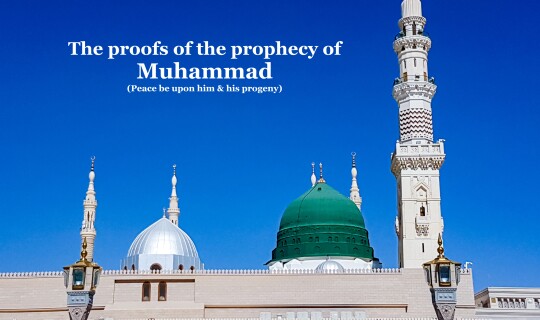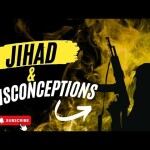Ayatullah Jawadi Amuli
Translated by S. A. Mirza
****
The article is the text of the paper delivered by his Excellency, Ayatullah Jawadi Amuli, at the conference on Constructive Interaction between the World Religions - A Framework for World Order, which was convened on March 18-19, 2006, in Isfahan, Iran, and was attended by prominent leaders of the living religions of the world.
****
Abstract
Greater world peace and order, which is characterized by a lasting and apposite mutual understanding between the peoples of the world, cannot be envisioned without a penetrating intellectual and metaphysical basis. Aspects of commonality in culture, language, race, economic structure or political system, and their like, do not suffice. What is needed is a series of unchanging principles which are innate to humanity and the human condition. This erudite paper endeavours to outline a number of such principles and their inevitable grounding in religion.
Keywords: World religions, religious unity, transcendent unity of religions, world peace, Islam and religious pluralism, blasphemy, desecration of the sacred, human nature.
***
In the Name of God, the All-beneficent, the All-merciful, and to He alone do we turn for help.
Perpetual praises are due to God all-eternal; salutations without end are in order upon God’s holy prophets—particularly his Eminence, the Seal of prophethood; boundless benedictions are owing upon the immaculate family—especially his Eminence, the Seal of sainthood, the promised Mahdi. We wish to near ourselves in friendship to these sacred souls and distance ourselves from their nefarious foes.
Having welcomed the prominent figures and authorities of the world’s religions and schools of thought, we would like to honour the presence here of all noble guests. We would like to thank the conveners and sponsors of this important conference—the Islamic Culture and Relations Organization, the Assembly for the Rapprochement between Religious Sects and Factions, and the Office of the Governor of Isfahan.
The world today is like a single city and all individuals are the virtual citizens of this assembly. Tranquility and peace of mind for all [in this global village] comes about in the wake of mutual respect and balanced interactions. A lasting and apposite mutual understanding cannot be arrived at without a penetrating intellectual and metaphysical basis.
For, those things which fall outside the human disposition are not only various and variegated, but are contradictory and antithetical as well; and everything that is external to the essential human self is not only different in relation to other such external things, but in fact it is inconstant and mutable in relation to itself as well. It is apparent that that which is not only variegated but rather antithetical, and that which is not only different but rather mutable as well, can never be the source of unity and the basis of unification.
Hence, language, features of time and place, particularities of race and region, cannot form the rationale for reasonable interaction. That thing which can be the driving motive for world harmony and order and which can play its part in removing the dirt of [discrimination arising from] differences and [caprice coming from] mutability and changeability will by presented to the respected audience in the course of a number of principles:
First Principle: Human nature, something that informs the entire identity of man, is immune from changeability and protected from discrepancy. That is to say, the disposition of every man—vis-à-vis its general principles and it’s all governing human ideals—is neither mutable in itself, nor is it different from those of other men. Hence, not only do human natures not oppose one another, but they are also not different from each other.
Moreover, differences in body types, changes in geographical climes, or the like, cannot affect established and accepted principles such as the principles of freedom, independence, security, and justice. Regarding human nature, its uniqueness, and its purity from any type of alien influence, the Creator of man and the world (and the Lord of the bond and tie between these two) has said:
فَأَقِمْ وَجْهَكَ لِلدِّينِ حَنِيفًا ۚ فِطْرَتَ اللَّهِ الَّتِي فَطَرَ النَّاسَ عَلَيْهَا ۚ لَا تَبْدِيلَ لِخَلْقِ اللَّهِ ۚ ذَٰلِكَ الدِّينُ الْقَيِّمُ وَلَٰكِنَّ أَكْثَرَ النَّاسِ لَا يَعْلَمُونَ
So set your heart on the religion as a people of pure faith, the nature of God according to which He originated mankind. There is no altering God’s creation; that is the upright religion. (Qur’an 30:30)
This nature, so long as it is not clouded by pollutants and when it does not become the underling of carnal desires, takes pleasure in pure thought as well as in clean motives. Every man can experience this truth in his inner self and can see its effects in others. Hence, human society is composed of a permanent and established principle, that is [human] nature, and a mutable and variable secondary aspect, which is characterized by physical, temporal, and regional particularities and their like.
Second Principle: Man, who has an immaterial spirit and a fixed [human] nature, is never overcome by the bitter experiences or unresolved situations of life. Nothing obliterates the spirit and it always exists by the grace of God. The ascendancy of man in his encounter with death lies in the fact that it is he that kills death and abolishes dying; death does not destroy him. The Holy Qur’an, that truthful and trustworthy narrator of reality, in judging the encounter between man and death has this to say:
كُلُّ نَفْسٍ ذَائِقَةُ الْمَوْتِ
Every soul shall taste death. (Qur’an 3:185)
That is, the soul of every man is a taster and death is that which is tasted. What is clear is that the taster remains and that the tasted thing is eventually digested and eliminated. From this perspective, that which takes place on the daunting fields of the encounter between man and death is the perseverance of man and the degeneration of death.
What the “death of death” means is the termination of the [natural] course of degeneration and mutability and the accession to the throne of permanence and immutability. Jalal al-Din Muhammad Mawlawi has encapsulated this sublime point in exquisite Persian verse as such:
From that which cripples run afar;
On long, rocky roads—lame you are.
If Death dares and now comes to me;
I will hug it firm lovingly.
While I draw from it life unmarked;
From me pulls a carcass all marked.
Disdain you its polish and scrape;
Be a mirror rusty and drape.
The quintessential point of spiritual anthropology and the sacred deposit of all of God’s prophets is that in dying, man comes out of his skin and not that he decays with it; or alternatively, that by dying, man only shuffles off this mortal coil and not his soul; and again, by dying man soars to new heights and does not sink to the dark depths.
Third Principle: Man’s true identity, according to the two above mentioned principles, is the same at all times and in all places, and will continue to be so. All prophets, especially of the Abrahamic lineage, who are the true owners of the hearts of the monotheists, have taught these two matters to man so that by acquiring this divine science he will not be inclined towards the left, nor will he frequent the right—because both have deviated far from the straight path. Imam ‘Alī (‘a) says, “The right (path) and the left (path) cause one to go astray; the middle path is the (right) way.”
The approach of the “common principle” makes possible deliverance from differences and discrepancies, and augments equitable interactions amongst the people of the world—especially the followers of the monotheistic religions and doctrines. In this regard, the call of heaven and the voice of revelation is:
…وَقُولُوا لِلنَّاسِ حُسْنًا …
…and speak kindly to people… (Qur’an 2:83)
The meaning of speak here is “all interaction,” including all speech, writing, behaviour, and actions, and not just speech by itself. It can be concluded that the reasonable or logical mutual understanding between religious communities has an ontological basis and hence has the capability of going from the level of conceptual knowledge to the level of concrete reality.
Fourth Principle: Equitable and balanced interaction between the followers of various religions and faiths is not possible without the establishment of a legal code. The convening of such scholarly symposiums as this one is a precursor to that legal code and constitution. The composition of the legal code is prior to the ratification of its clauses and the formation of a catechism.
This is because a secondary without a primary principle is absent of cognitive content and is not founded upon any base of knowledge. The value-laden articles of the legal code are procured by clauses pertaining to justice, freedom of speech and expression, independence, public safety and security, human rights, democracy, non-violence, anti-terrorism, and their like. But the mentioned concepts go to form the underlying foundation of the legal code and are in no way to be considered as its sources.
This is because each and every one of the mentioned notions has various interpretations and due to the discrepancy that exists between these interpretations it is not possible to arrive at a single and universally accepted covenant or international agreement.
Hence, for the sake of the theoretical consistency and practical stability of the reasonable interaction between monotheistic believers, it is necessary to derive the legal code from sources that are both immutable and common. This weighty affair calls for the prior apprehension of what this common source is and its ability to give rise to those specific founding legal precepts as have the ability to inform the legal code in question.
Fifth Principle: Man moves according to his own particular epistemological perspective. If his epistemology is limited to his senses and sensory experience, his ontology in turn becomes restricted to the material realm, and his life—due to his false belief—ends up being strapped in the confines of the straightjacket that the natural world becomes for him. But if his epistemological perspective is broader and includes not only empirical reason but also abstract intellection, then his ontological perspective is given free rein in the more expansive realm which includes both the material and the immaterial.
For it is only in proportion to man’s awareness of Reality that he gains freedom in the physical and metaphysical realms. The materialists and the myopic worldlings are and have always been in a psychological and military war with the free-minded believers regarding the physical and meta-physical. God, almighty, relates the bad behaviour of the crooked-minded in relation to the prophets in this way:
يَا حَسْرَةً عَلَى الْعِبَادِ ۚ مَا يَأْتِيهِمْ مِنْ رَسُولٍ إِلَّا كَانُوا بِهِ يَسْتَهْزِئُونَ
How regrettable of the servants! There did not come to them any apostle but that they used to deride him. (Qur’an 36:30)
The underlying reason for their deriding and mocking the prophets is their stagnation based on the limited knowledge of the physical and natural world. The Qur’an says,
فَلَمَّا جَاءَتْهُمْ رُسُلُهُمْ بِالْبَيِّنَاتِ فَرِحُوا بِمَا عِنْدَهُمْ مِنَ الْعِلْمِ وَحَاقَ بِهِمْ مَا كَانُوا بِهِ يَسْتَهْزِئُونَ
When their apostles brought them manifest proofs, they exulted in the knowledge they possessed, and they were besieged by what they used to deride. (Qur’an 40:83)
So if the prophets of God such as Abraham, Moses, Jesus, and the last of them, Muhammad (S) have been the object of profanities at the hands of the Salman Rushdies, the Danish cartoonists, or the ilk of the destroyers of the sacred shrine of Imam al-Hadi and Imam al-ÝAskari of our time and of all other ages, it is because they are prisoners of the natural world and consider the free space outside their prison to be nothing but fairy tales and the “opium of the people”.
Sixth Principle: The official mandate of the prophets is to inform man about the world, about man himself, and about the bond and nexus between man and the world; their responsibility is to equip man with doctrinal knowledge, ethical character traits, jurisprudential laws and legal stipulations so that he neither goes astray himself, nor becomes an obstacle in the way of others. Such an exalted task calls for unity in the source of receptivity (or material cause), which can be had by way of an analysis of the meaning of human nature and the original disposition and identity of man.
Such an endeavour also requires the unity of the source of action (or efficient cause), one which is guaranteed by the Creator and Lord of the three-way relationship mentioned above and one which is had by tracing the causes of the unity and unicity of the Godhead. On one hand, the common goal of all of the prophets and all of the immaculate Imams is to cultivate and bring to blossom the potentials of human nature (for Imam ‘Alī says, “they lay bare to them the deposits of the intellects”), and on the other hand, their goal is to teach the Book and wisdom vis-à-vis knowledge and vision, and the spiritual cleansing of the souls vis-à-vis effort [the application of the will].
Hence, every former prophet was the harbinger of the prophet that came after him—and every latter prophet was the confirmer of the ones that preceded him. God speaks of the project of former and latter prophets in this way:
لَقَدْ أَرْسَلْنَا رُسُلَنَا بِالْبَيِّنَاتِ وَأَنْزَلْنَا مَعَهُمُ الْكِتَابَ وَالْمِيزَانَ لِيَقُومَ النَّاسُ بِالْقِسْطِ
Certainly We sent Our apostles with manifest proofs, and We sent down with them the Book and the Balance, so that mankind may maintain justice. (Qur’an 57:25)
According to this explanation, the secret of success of the divine prophets is in their bringing forth the Law. Now, because in such a scheme the subjects of the Law or the ruled are one—as per their original human identity, and because the Lawgiver, God Eternal, is One, and because the bringers and expounders of the Law, the prophets, are united in their integrity and trustworthiness—we can conclude that all of the elements and prerequisites for a balanced interaction and all of the factors for a mutual understanding are obtained. In such case there is no reason to entertain agreements and contracts based on “friendship”.
Where is Moses that with a staff in this desert bare;
Set to flow a hundred odd springs from this stony lair?
Where, from five apparent senses and five hidden ones-
Is the springer from this body of the ten fountains?
Spirit is Jesus to the corpse of our cradle, true;
But where is Mary who can rock this cradle, anew?
It is the absence of prophets or rather disregard of them that causes the harmonious order between the followers of the world’s religions to break down.
Seventh Principle: The world is there to be in the service of man, not man in the service of the world; that is why God, the Keeper of the heavens and the earth, has spoken of man subjugating the expanses of the earth and mastering the flow of history, and not being subjugated by them. Man’s proper use of the ocean depths and the far reaches of space becomes possible when there is an exchange and interplay of ideas and not when they are set into conflict—being [forcefully] imposed and [meekly] absorbed.
This interplay of ideas is very much like the marriage that takes place between opposite sexes and it paves the way for the unfolding of knowledge and the production of arts. World unity [or peace] by way of political, economic, and industrial artifices, or their like, is tantamount to a façade, whereas faith forms the foundation upon which these artifices are to be built. The only principle that can procure a harmonious world order is a unity of faith or the alliance of the believers in the world’s religions and their various branches.
Although unity may be difficult to achieve, the formation of an alliance is not as demanding. Islamic Iran has had the honour to convene such a prestigious gathering and, as such, will be the point of departure for constructive interaction.
Those engrossed in worldly concerns and dealings, who are alien to the very principle of faith, must know well that when they carry out sacrilege and profanation of religious sanctities, or when they murder the men of God or even when they engage in the desecration of the shrines of such saints (from Karbala to Baqi’, and from Baqi’ to Samara), or when they insult and blaspheme the paragons of religion, (and they do all this for a material world that is dark, dismal, and spiritless), then these acts of theirs will stop them from making any type of progress, and apart from the repercussions, if any, at the hands of the people, such deeds will only lead to Divine punishment. It could be that human battles are a portion of that Divine retribution, for as the Qur’an says:
قَاتِلُوهُمْ يُعَذِّبْهُمُ اللَّهُ بِأَيْدِيكُمْ وَيُخْزِهِمْ وَيَنْصُرْكُمْ عَلَيْهِمْ وَيَشْفِ صُدُورَ قَوْمٍ مُؤْمِنِينَ
Make war on them so that Allah may punish them by your hands and humiliate them, and help you against them. (Qur’an 9:14)
The correct analysis and explanation of this matter is the responsibility of religious scholars in their role as the inheritors of the prophets.
Eighth Principle: The purpose for convening such symposiums, whether in Iran or in any other Islamic country, is not to sign a political agreement or to affect a military ceasefire; rather, the purpose is to save existing cultural links and to deepen religious relationships—such as will not be altered by any political or economic events. Solidarity amongst the prophets and the unity of their common goal is pertinently portrayed by the Qur’an. For God says of those who belied their own prophet that they have actually belied all of the prophets:
وَلَقَدْ كَذَّبَ أَصْحَابُ الْحِجْرِ الْمُرْسَلِينَ
Certainly the inhabitants of Hijr denied the apostles. (Qur’an 15:80)
كَذَّبَتْ عَادٌ الْمُرْسَلِينَ
[The people of] ‘Ad impugned the apostles. (Qur’an 26:123)
كَذَّبَتْ قَوْمُ لُوطٍ الْمُرْسَلِينَ
The people of Lot impugned the apostles. (Qur’an 26:160)
It is possible that what is meant here is that they denied prophethood itself and, hence, the evil consequence of such a denial is to belie all prophets. In any case, what is being said here is that those who go beyond the bounds of mutual understanding [and respect] for people, always end up destroying whole generations and their tilth, and wherever they invade they leave in ruins.
.. إِنَّ الْمُلُوكَ إِذَا دَخَلُوا قَرْيَةً أَفْسَدُوهَا وَجَعَلُوا أَعِزَّةَ أَهْلِهَا أَذِلَّةً ۖ وَكَذَٰلِكَ يَفْعَلُونَ
Indeed when kings enter a town, they devastate it, and reduce the mightiest of its people to the most abased. (Qur’an 27:34)
However, apart from these and their ilk, those who do have the capacity to carry on a scholarly exchange, can, nay rather they must, apply themselves to enumerating the intellectual errors of the former and must carry out their discussions in a perfectly open forum that is free from sacrilege.
With the hope that we will come to witness a world full of peace, freedom, and prosperity, I would like to once again welcome the honoured guests—the followers of the world religions and religious schools of thought and would like to thank the conveners of this outstanding gathering.
I would like to end this message by sending the best of salutations and the highest of blessings upon the pure souls of the prophets of God (may Peace be upon them)—in particular his eminence the last of the prophets (may God bless him and his progeny and upon them be Peace)—and upon the pure souls of the Imams—in particular Imam Hadi and Imam ‘Askari, whose shrine was desecrated in Samara, and the noble spirit, the last of the Imams, the promised Mahdi (upon him be Peace).
Peace be upon he that follows the Guidance.











